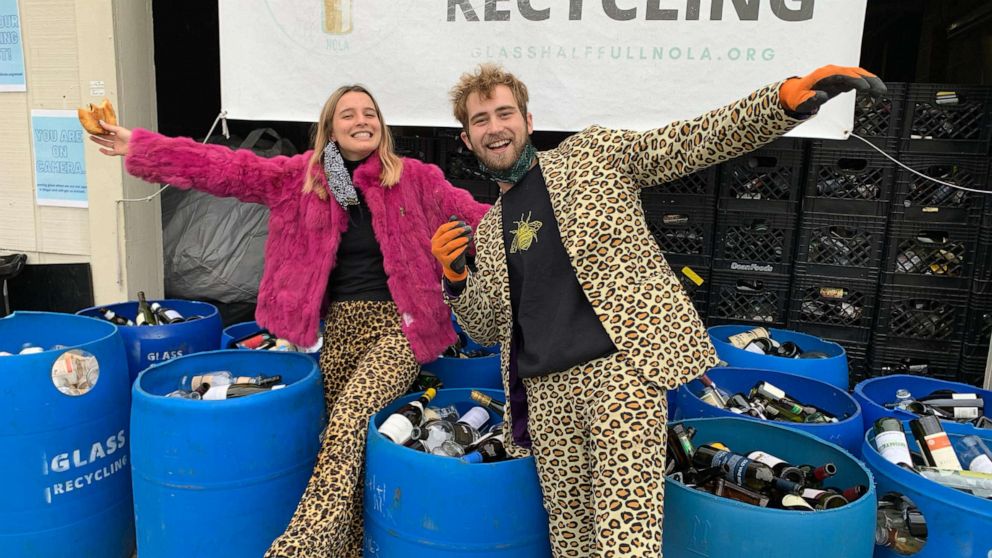A recycling startup in Louisiana offers a solution for glass waste
The Louisiana glass was piling up, so two students decided to fix it.
What will happen to that bottle of wine when it’s finished and thrown away?
This is the question that Franziska Trautmann and Max Steitz say they asked themselves one evening. They reflected on the fate of the bottle to join the more than 11 million tons of glass intended for landfill.
Tulane University alumni say they then came up with the idea of turning that bottle into the glass that gave birth to it. Two years after Glass Half Full NOLA brought its glass recycling services to New Orleans, Trautmann and Steitz went from crushing beer bottles in their backyard to running a business they believe is has recycled over 2 million pounds of glass.
“I fell victim to this mindset before I launched Glass Half Full NOLA, which is ‘individuals can’t do anything’. It’s like all businesses that have to change and are the problem,” Trautmann said. “Then, after putting all of this together, I realized how much individuals can do.”
The company is now go viral on TikTok for his satisfying glass crushing videos. Recycled glass is ground into sand or cullet, which are pieces of broken glass. The sand or cullet is then sold for flooring, glass products, as gravel for driveways or used in sandbags, which is a valuable resource during hurricane season.
The company relies on volunteers, including Tulane scientists. While the process is still in the testing phase, Glass Half Full says the recycled glass could potentially be used to help restore Louisiana’s coastlines and other natural areas.
Katie Russell, a senior professor in Tulane’s chemical and biomolecular engineering department, said she wants to help restore the coastline because New Orleans is her home. Russell organizes student volunteers for Glass Half Full and says she thinks it’s important to preserve the port city as nature intended.
“We take a product, a waste that would be landfilled. And instead, we convert it into a useful product that can be used to do good in the community,” Russell said.
Russell also leads students in conducting experiments to see how glass can be used safely in nature and in manufacturing. Louisiana is losing a football field every 100 minutes on average due to coastal restoration, so the company is focusing on land restoration, according to Glass Half Full.
“The power of this Glass Half Full family in New Orleans, Louisiana is a community that comes together to bring about the change they want. Whether it’s people giving time, money, or support. “Expertise. It’s really the story of a city or a state, a community coming together to bring about the change they wanted to see happen,” Steitz said.
Trautmann said she hopes others will also start making small, more sustainable choices to help protect the planet. She recalled that when the business started, she didn’t see much traction until word got out.
“As two children, we lived quite a sheltered life in our little two-way bubble. And suddenly we had requests from local organizations and nonprofits and other New Orleans residents who wanted to help,” Trautmann said. “It kind of lit the fire under us to keep going and make this even bigger.”
Trautmann and Steiz believe that the small actions people take every day to care for the planet are the things that matter most in the world.
“The micro actions make up the macro,” Steitz said.


Comments are closed.